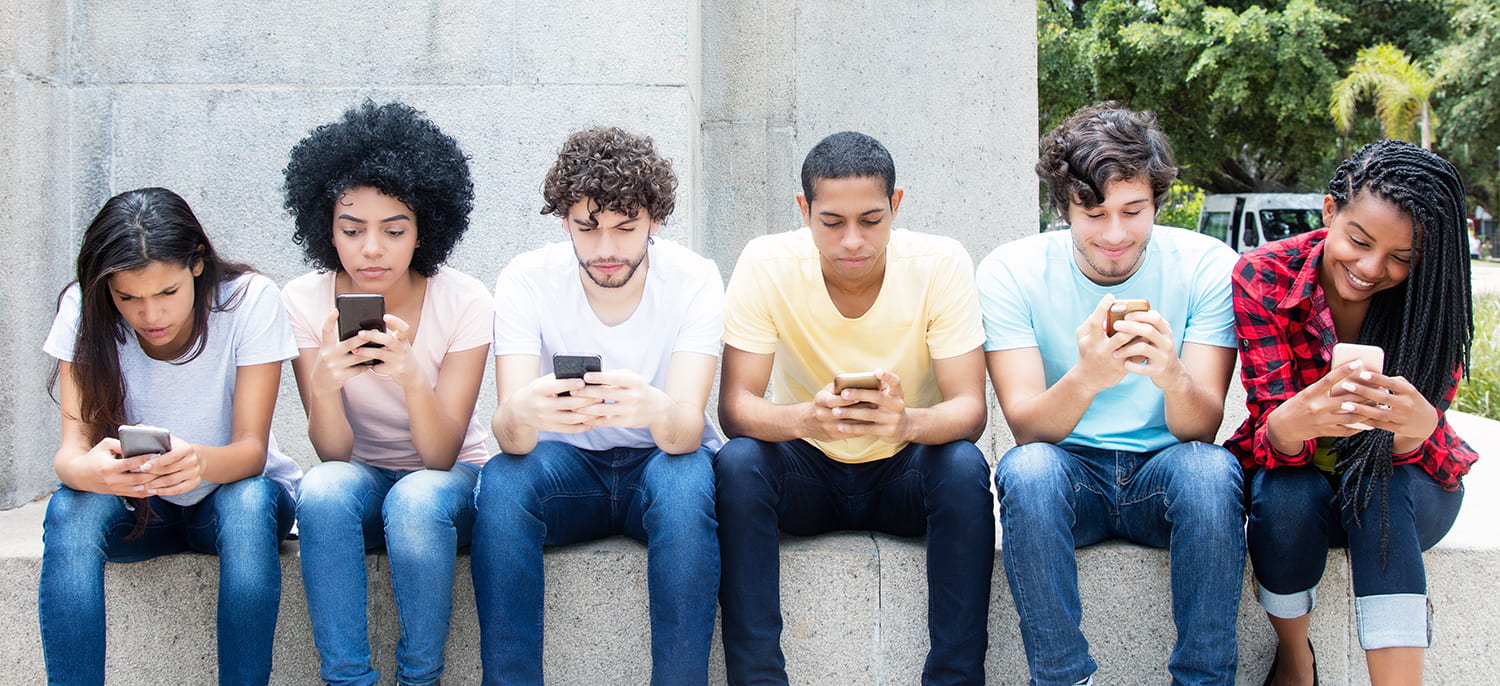Tech time not to blame for teens' mental health problems
Study of 400 teens finds little evidence linking excessive smartphone use and mental health outcomes

Irvine, Calif., Aug. 23, 2019 — A new study, published in the journal Clinical Psychological Science, suggests that the time adolescents are spending on their phones and online is not that bad.
The study tracked young adolescents on their smartphones to test whether more time spent using digital technology was linked to worse mental health outcomes. The researchers — Candice Odgers, professor of psychological science at the University of California, Irvine; Michaeline Jensen, assistant professor of psychology at the University of North Carolina at Greensboro; Madeleine George, postdoctoral researcher at Purdue University; and Michael Russell, assistant professor of behavioral health at Pennsylvania State University — found little evidence of longitudinal or daily linkages between digital technology use and adolescent mental health.
(Link to study: https://journals.sagepub.com/doi/10.1177/2167702619859336)
“It may be time for adults to stop arguing over whether smartphones and social media are good or bad for teens’ mental health and start figuring out ways to best support them in both their offline and online lives,” Odgers said.
“Contrary to the common belief that smartphones and social media are damaging adolescents’ mental health, we don’t see much support for the idea that time spent on phones and online is associated with increased risk for mental health problems,” Jensen said.
The study surveyed more than 2,000 youth and then intensively tracked a subsample of nearly 400 teens on their smartphones multiple times a day for two weeks. Adolescents in the study were between 10 and 15 years old and represented the economically and racially diverse population of youth attending North Carolina public schools.
The researchers collected reports of mental health symptoms from the adolescents three times a day and they also reported on their daily technology usage each night. They asked whether youth who engaged more with digital technologies were more likely to experience later mental health symptoms and whether days that adolescents spent more time using digital technology for a wide range of purposes were also days when mental health problems were more common. In both cases, increased digital technology use was not related to worse mental health.
When associations were observed, they were small and in the opposite direction that would be expected given all of the recent concerns about digital technology damaging adolescents’ mental health. For instance, teens who reported sending more text messages over the study period actually reported feeling better (less depressed) than teens who were less frequent texters.
A video walk-through of the study and the journal article are available online.
About the University of California, Irvine: Founded in 1965, UCI is the youngest member of the prestigious Association of American Universities. The campus has produced three Nobel laureates and is known for its academic achievement, premier research, innovation and anteater mascot. Led by Chancellor Howard Gillman, UCI has more than 36,000 students and offers 222 degree programs. It’s located in one of the world’s safest and most economically vibrant communities and is Orange County’s second-largest employer, contributing $5 billion annually to the local economy. For more on UCI, visit www.uci.edu.



